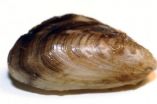Making temporary changes to brain could speed up learning, study reports
Breakthrough may aid treatment of learning impairments, strokes, tinnitus and chronic pain
2011-04-14
(Press-News.org) In a breakthrough that may aid treatment of learning impairments, strokes, tinnitus and chronic pain, UT Dallas researchers have found that brain nerve stimulation accelerates learning in laboratory tests.
Another major finding of the study, published in the April 14 issue of Neuron, involves the positive changes detected after stimulation and learning were complete. Researchers monitoring brain activity in rats found that brain responses eventually returned to their pre-stimulation state, but the animals could still perform the learned task. These findings have allowed researchers to better understand how the brain learns and encodes new skills.
Previous studies showed that people and animals that practice a task experience major changes in their brains. Learning to read Braille with a single finger leads to increased brain responses to the trained digit. Learning to discriminate among a set of tones leads to increased brain responses to the trained tones.
But it was not clear whether these changes are just coincidence or whether they truly help with learning. The current research demonstrates that changes in the brain are meaningful and not merely coincidental, said Dr. Amanda Reed, who wrote the article with colleagues from The University of Texas at Dallas' School of Behavioral and Brain Sciences.
Reed and her fellow researchers used brain stimulation to release neurotransmitters that caused the brain to increase its response to a small set of tones. The team found that this increase allowed rats to learn to perform a task using these tones more quickly than animals that had not received stimulation. This finding provides the first direct evidence that a larger brain response can aid learning.
Future treatments that enhance large changes in the brain may also assist with recovery from stroke or learning disabilities. In addition, some brain disorders such as tinnitus or chronic pain occur when large-scale brain changes are unable to reverse. So this new understanding of how the brain learns may lead to better treatments for these conditions.
Researchers examined the laboratory animals' brains again after the rats had practiced their learned task for a few weeks. The brains appeared to have returned to normal, even though the animals had not forgotten how to perform the task they had learned. This means that, although large changes in the brain were helpful for initial learning, those changes did not have to be permanent, Reed wrote.
"We think that this process of expanding the brain responses during learning and then contracting them back down after learning is complete may help animals and people to be able to perform many different tasks with a high level of skill," Reed said. "So for example, this may explain why people can learn a new skill like painting or playing the piano without sacrificing their ability to tie their shoes or type on a computer."
The study by Reed and colleagues supports a theory that large-scale brain changes are not directly responsible for learning, but accelerate learning by creating an expanded pool of neurons from which the brain can select the most efficient, small "network" to accomplish the new skill.
This new view of the brain can be compared to an economy or an ecosystem, rather than a computer, Reed said. Computer networks are designed by engineers and operate using a finite set of rules and solutions to solve problems. The brain, like other natural systems, works by trial and error.
The first step of learning is to create a large set of diverse neurons that are activated by doing the new skill. The second step is to identify a small subset of neurons that can accomplish the necessary computation and return the rest of the neurons to their previous state, so they can be used to learn the next new skill.
By the end of a long period of training, skilled performance is accomplished by small numbers of specialized neurons not by large-scale reorganization of the brain. This research helps explain how brains can learn new skills without interfering with earlier learning.
The researchers used anesthesia when inserting electrodes into the laboratory rats' brains. The brain stimulation was painless for the rats, Reed said. Co-authors of the study were Drs. Jonathan Riley, Ryan Carraway, Andres Carrasco, Claudia Perez, Vikram Jakkamsetti and Michael Kilgard of UT Dallas.
INFORMATION:
The work was supported by the James S. McDonnell Foundation. Reed is a former McDermott Scholar at UT Dallas. After earning her bachelor's and master's degrees, she went on to also earn a PhD in neuroscience at UT Dallas.
END
ELSE PRESS RELEASES FROM THIS DATE:
2011-04-14
For the first time, scientists at Toronto General Hospital, University Health Network have shown in a clinical trial that the Toronto XVIVO System can safely and effectively treat, re-assess and improve the function of high-risk donor lungs so that they can be successfully transplanted into patients. The use of this technique could significantly expand the donor organ pool and improve outcomes after transplantation.
In their pioneering work, a team of researchers led by Dr. Shaf Keshavjee, Senior Scientist at the McEwen Centre for Regenerative Medicine, University Health ...
2011-04-14
The Mountain Winery selected Hopelessly Romantic Media Productions (HRMP) as its publisher. Best known for publishing Hopelessly Romantic Magazine and The Classic Male Magazine, HRMP also handles custom magazine publishing for any size business. They also offer custom wedding magazines for couples who want to share their thoughts and photos with their guests as the perfect "Thank You" card. HRMP also produces video commercials for web and broadcast.
When a paid magazine advertiser spends at least $500 on an ad, HRMP will create ad space for a local charity in that advertiser's ...
2011-04-14
ANN ARBOR, Mich.---The ongoing spread of non-native mussels in the Great Lakes has caused "massive, ecosystem-wide changes" throughout lakes Michigan and Huron, two of the planet's largest freshwater lakes, according to a new University of Michigan-led study.
The blitzkrieg advance of two closely related species of mussels---the zebra and quagga---is stripping the lakes of their life-supporting algae, resulting in a remarkable ecological transformation and threatening the multibillion-dollar U.S. commercial and recreational Great Lakes fisheries.
Previous studies have ...
2011-04-14
DALLAS – April 14, 2011 – A natural hormone known to inhibit aging can also protect kidneys against renal fibrosis, UT Southwestern Medical Center researchers have demonstrated.
Scientists led by Dr. Makoto Kuro-o, associate professor of pathology, showed in mice that the anti-aging hormone Klotho suppressed both renal fibrosis – a common complication of chronic kidney disease – and the spread of cancer. The findings are available online in the Journal of Biological Chemistry.
More than 26 million people in the U.S. are affected by chronic kidney disease. Researchers ...
2011-04-14
Cincinnati, OH, April 14, 2011 -- The number of couples struggling with infertility is on the rise, and these couples often use assisted reproductive technologies, like in vitro fertilization (IVF), to get pregnant. Although IVF can be successful, it can also increase the risk of multiple pregnancies (i.e., twins or triplets), which are often caused by transferring more than one embryo. Twins and triplets are likely to be born prematurely, and, as a result, many have medical complications. A new study soon to be published in The Journal of Pediatrics finds a major decrease ...
2011-04-14
New York, NY, April 14, 2011—If implemented successfully, accountable care organizations (ACOs) have the ability to achieve better care, better population health, and lower costs, according to a new report released today by the Commonwealth Fund Commission on a High Performance Health System. Implementing ACOs effectively will be vital to their success and, to that end, the Commission report also includes 10 recommendations for effective implementation, focusing on the design, payment and functioning of ACOs. An accompanying Commonwealth Fund perspective contains an analysis ...
2011-04-14
This press release is available in French.
Montreal, April 13, 2011 – The use of cognitive-behavioural therapy to treat tics in Tourette syndrome may be as effective as and even superior to medication in certain cases. According to a new study published in a special edition of the International Journal of Cognitive Therapy by researchers from the Fernand-Seguin Research Centre of the Louis-H. Lafontaine Hospital affiliated with Université de Montréal, it was observed that therapy has an effect not only on tics, behaviour and thoughts, but also on brain activity.
"This ...
2011-04-14
DETROIT — The Keeywaytinook tribe in northern Ontario, Canada, couldn't afford a high school, and its youth, some as young as 13 years old, had no option but to live in unfamiliar communities to attend school. But this option sparked a culture shock among some students that impeded their ability to learn and was even fatal in some cases. To address the issue, the tribe developed an online high school to provide its youth with distance learning that actually kept them closer to home.
Michael Barbour, Ph.D., assistant professor of instructional technology at Wayne State ...
2011-04-14
Michaels, North America's largest arts and crafts specialty retailer, celebrates mom's special day with a week-long series of in-store Mother's Day gift-making events and a Mother's Day contest on its Facebook page.
The contest starts Friday, April 15. Fans can upload a photo to the Mother's Day contest tab on Michaels' Facebook page and embellish it with tools in the Facebook application. Fans can then encourage family and friends to visit the page gallery and vote on their photo project. The photo with the most votes by 11:59am EDT on May 7 will win the grand prize ...
2011-04-13
Lukas, the World's Smartest Horse (according to the World Records Academy) and Guinness World Record Holder, has been nominated for a star on the renowned Hollywood Walk of Fame! According to Karen Murdock, Lukas' owner/trainer, Lukas' category is Performance (apparently there wasn't one for best smile). Lukas would be the first horse selected and would join dogs Lassie and Rin Tin Tin, if chosen.
Trivia question: But what about Trigger? (see answer below)
Nominee's Qualifications:
Lukas has appeared on NBC, CBS, ABC, CNN, HLN, and Inside Edition, as well as in ...
LAST 30 PRESS RELEASES:
[Press-News.org] Making temporary changes to brain could speed up learning, study reports
Breakthrough may aid treatment of learning impairments, strokes, tinnitus and chronic pain


